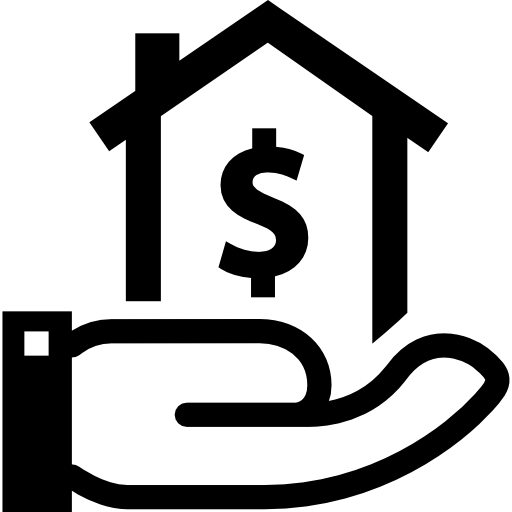Worried about selling a house in a less-than-good condition? Selling a house as-is allows you to sell the property in its exact, current state, often for a cash price and quickly. You don’t have to make any repairs or pay to fix it up before the sale.
So, how exactly is it done and is it the right choice? Find out in our guide on selling a house as-is in Rhode Island.
Key Summary
- Selling as-is in Rhode Island is quick and easy for fixer-uppers.
- Options include cash sales, FSBO, selling directly, or house flippers.
- Small fixes can boost home appeal and value at low-cost output.
- It is a legal requirement to disclose the condition of the house.
- Knowing financing choices helps attract more buyers and makes selling a smoother process.
How to Sell a Home As-Is in Rhode Island
If you have a fixer-upper home for sale in Rhode Island, you need to be prepared that you might not get the most money for it. Selling as-is does, however, relieve the need to do costly repairs and offers a speedy solution to sellers.
To ensure you get the best offer for your as-is home, follow our 5 simple steps:
1. Know Your Options
There are several ways to sell a home as-is. Let’s take a look at each possibility:
List on a Cash Marketplace
Maximizing exposure through cash marketplaces can connect you to “We Buy Houses for Cash” companies and investors in Rhode Island, potentially offering quick, cash-based transactions.
Sell a House As-Is for Cash in Rhode Island
Cash buyers will propose an all-cash offer, but you should be prepared for it to range between 30% to 70% of your home’s fair market value (FMV). iBuyers might offer closer to 80% FMV.
Sell Your Home As Is By Owner
Taking the For Sale By Owner (FSBO) route means you can avoid costly realtor commissions. It is worth noting, however, that FSBO properties are time-consuming and stressful. If you choose to sell this way, make use of a Rhode Island MLS listing service. Being listed on the MLS considerably increases visibility.
Sell Your House to House Flippers
House flippers seek properties they can renovate and sell for a profit. Selling your home as-is to a flipper offers a great solution to offloading a property needing work.
2. Make Minor Repairs

Investing in minor repairs not only enhances the appeal of your property but can also significantly increase its market value with minimal investment.
Addressing small issues allows you to position your home as a more attractive option for buyers. It can also potentially speed up the sale process and boost the final sale price. Here are a few low-cost suggestions that require minimal effort to improve your home:
Painting
Freshening up the walls with a new coat of paint can breathe new life into your home, making it appear brighter and more inviting.
Updating Cabinet Hardware
Replacing old, worn-out knobs and handles on cabinets can modernize your kitchen or bathroom with minimal effort.
Enhancing Curb Appeal
Simple landscaping improvements, such as trimming hedges, adding mulch, or planting flowers, can significantly enhance your home’s first impression.
Fixing Light Fixtures
Updating outdated or non-functional light fixtures can improve the home’s overall lighting and appeal.
Deep Cleaning
A thorough cleaning, including carpets, windows, and hard-to-reach areas, can make your property feel well-maintained and welcoming.
Repairing Plumbing Leaks
Addressing any leaks, no matter how small, prevents potential buyer concerns about plumbing issues.
Average Costs of Minor Home Improvements in Rhode Island

| Improvement | Description | Average Cost in RI |
|---|---|---|
| Painting | Interior painting for one room | $300 - $800 per room |
| Updating Cabinet Hardware | Replacement of knobs and handles | $2 - $10 per piece |
| Enhancing Curb Appeal | Basic landscaping services | $50 - $300 |
| Fixing Light Fixtures | Light fixture replacement | $100 - $200 per fixture |
| Deep Cleaning | Professional deep cleaning service | $100 - $400 |
| Repairing Plumbing Leaks | Fixing minor leaks in faucets or pipes | $150 - $350 |
These improvements are accessible, both in terms of cost but also return on investment. Addressing these issues can change how your home is perceived by prospective buyers, which can positively impact the speed of sale and sale price.
3. Conduct a Pre-Listing Inspection
A pre-listing inspection covers a wide range of areas and systems within the home to ensure they are in working order. Common areas and items inspected include:
Structural Components
Inspect the foundation, floors, walls, ceilings, and roof for signs of damage or wear.
Exterior
Examine the home’s exterior, including siding, windows, doors, and the condition of decks and porches.
Roofing
Evaluate the condition of the roof, including shingles, flashing, and gutters, to identify leaks or potential for water damage.
Plumbing
Check all plumbing fixtures, pipes, and drains for leaks or clogs.
Electrical System
Assess the electrical panel, wiring, outlets, and switches for safety and code compliance.
Heating and Cooling Systems
Verify that the HVAC system is functioning correctly and efficiently.
Interior
Look at interior doors, windows, floors, walls, and ceilings for damage or issues.
Insulation and Ventilation
Ensure adequate insulation and proper ventilation in the attic and crawl spaces.
Appliances
Test major appliances to ensure they are working as expected.
Conducting a thorough pre-listing inspection allows sellers to identify any issues that might deter buyers or affect the property’s value. Being proactive with an inspection means sellers can accurately disclose any issues, or repair them if they wish.
4. Accurately Complete the Seller Disclosures
Rhode Island has stringent disclosure laws that require sellers to be upfront about the condition of their property.
Before any real estate transaction, sellers must deliver a written disclosure statement to the buyer. This statement must accurately detail the property’s condition, including any known defects or issues. This legal requirement is designed to protect buyers and ensure that they are fully informed about the property they are considering purchasing.
Disclosure statements also minimize the risk of post-sale disputes or legal challenges, as well as helping to establish trust with the buyer.
5. Understand the Real Estate Contract

As-is contracts in real estate signify that the property is being sold in its current condition, with the seller making no warranties or promises to conduct repairs or improvements before the sale. This type of agreement explicitly puts the buyer on notice that they are accepting the property, flaws and all, based on their inspection or waiver thereof.
Can a Buyer Pull Out of an As-Is Contract?
In Rhode Island, as in many jurisdictions, these contracts include provisions that allow buyers a period to conduct their own due diligence and inspections. Specifically, a shorter period, such as 15 days, is often allocated for this purpose, during which the buyer can assess the property’s condition through professional inspections.
If, during this period, undisclosed issues are discovered, the buyer has the option to renegotiate the terms or withdraw their offer without penalty, ensuring they are not unduly committed to a purchase that doesn’t meet their expectations.
On the other hand, sellers are protected from post-sale disputes over property conditions by clearly stating in the contract that no further repairs will be made. Sellers must, however, remain transparent. If they fail to disclose known defects, they could be held accountable, potentially being required to complete repairs or compensate the buyer as stipulated in the contract.
What are the Pros and Cons of Selling As-Is in Rhode Island?
Pros
- Quicker Sale Process: Selling a house as-is in Rhode Island often results in a faster sale. This makes it an ideal option for sellers eager to avoid the delays associated with repairs and renovations.
- Less Stress for Sellers: Choosing an as-is sale can significantly reduce stress for sellers by eliminating the need to coordinate repairs, deal with contractors, and manage the logistics and expenses of home improvements.
- No Upfront Costs: Selling as-is means fewer initial expenses. Buyers know the property's state upfront, reducing surprises and increasing trust. As a realtor, you don’t have to fix those repairs. You don’t have to paint, you don’t have to clean.
- Transparent Transactions: As-is sales can enhance transaction transparency. Buyers have a clear understanding of the property's condition from the beginning, minimizing surprises and building trust.
- Direct Sale Opportunities: This selling method opens doors to direct sales with investors, who are often in search of properties to renovate and flip, usually providing cash deals and a simplified selling process.
Cons
- Lower Sale Prices: Properties sold as-is may attract lower offers, as buyers typically deduct the cost of anticipated repairs and renovations from their offer to cover these future expenses.
- Limited Buyer Interest: An as-is sale may not appeal to a broad spectrum of buyers, primarily attracting a niche market of investors and cash buyers, thereby potentially excluding interested traditional buyers.
- Buyer Financing Challenges: The condition of as-is properties can pose difficulties for buyers seeking financing. Lenders' strict property condition requirements can limit options for buyers interested in these types of homes.
- Potential for Legal Disputes: If sellers fail to fully disclose known defects, as-is sales can lead to legal disputes. Proper management and transparency are crucial to avoid misunderstandings and potential legal issues
- Perception of Neglect: An as-is listing may be perceived by potential buyers as a sign that the property has been neglected. This perception can deter buyers who might be interested if the property were in a more maintained state or if minor repairs were addressed.
Rhode Island Property Market 2024
So far in 2024, Rhode Island’s real estate landscape has been defined by a high-demand and low-supply dynamic. This trend substantially lifts house prices and can also impact seller strategies.
Here’s some of the latest data from the Rhode Island property market:
Rhode Island Property Market Key Figures
| Metric | January 2024 |
|---|---|
| Median Sale Price | $460,100 (+12.6% YoY) |
| Total Number of Home Sales | 2076 (-4.8% YoY) |
| Average Days on Market | 35 (-3 YoY) |
| Sale-to-List Price Ratio | 99.6% (+0.4 pt YoY) |
Data Source: Redfin
These figures illustrate the current seller’s market conditions, with high demand pushing up prices despite a decrease in the number of transactions. Homes are selling relatively quickly, and sellers are receiving offers very close to, or sometimes even over, the asking prices. This signals strong market conditions for sellers.
Assessing Market Conditions
Given the seller’s market in Rhode Island, where demand outstrips supply, sellers might find an as-is sale particularly advantageous.
With buyers vying for a limited number of available properties, the readiness to overlook minor or even major repairs can be markedly higher. The dynamics, however, would shift in a buyer’s market, making an as-is sale less appealing due to the greater selection available to buyers.
Understanding Your Property’s Appeal
The decision to sell as-is should also consider the unique attributes and condition of your property. Homes requiring significant work are potentially more attractive to investors or flippers than to the typical home buyer seeking a move-in-ready dwelling.
What to Market Trends to Consider
Reflect on these critical market insights to guide your decision:
- How quickly are homes selling in your area? The rapid pace of sales suggests a market favorable to as-is transactions.
- What is the average selling price relative to the listing price? A high sale-to-list price ratio indicates strong buyer demand and limited negotiation room, which is advantageous for as-is sales.
- Are there many similar properties on the market? The uniqueness of your property, coupled with limited inventory, enhances its appeal, potentially even in an as-is condition.
Using these market indicators can help with your decision making process when it comes to selling a property in Rhode Island. Be sure to use the latest data available to assess whether selling your house as-is aligns with the current climate.
Types of Financing That Affect As-Is Sales

Financing options play a pivotal role in facilitating the sale of as-is properties, impacting both the accessibility of these homes to potential buyers and the selling process for homeowners. To better understand the landscape, below is a detailed overview of the primary financing methods available and their implications:
Financing Options for As-Is Property Sales
| Financing Type | Description |
|---|---|
| Conventional Mortgages | These are standard mortgage options but may be less attainable for homes needing extensive repairs due to lenders' strict property condition requirements. |
| FHA 203(k) Loans | Specifically designed for properties requiring rehabilitation, these loans cover both the purchase price and renovation costs, making them ideal for as-is properties. |
| Cash Purchases | Offering the most straightforward transaction, cash purchases bypass the complexities of financing, appealing to sellers and buyers of as-is homes. |
| Sale-to-List Price Ratio | 99.6% (+0.4 pt YoY) |
What Impact Can This Have On As-Is Sellers?
For sellers, understanding different financing options is crucial when selling an as-is property. Traditional loans like conventional mortgages might be hard to get for homes needing big repairs, limiting potential buyers.
FHA 203(k) loans are a great choice for buyers who want to buy and fix up a home but don’t have the cash up front, opening up a wider buyer market. Cash sales are the simplest and quickest, perfect for as-is deals since they bypass the need for bank-required fixes.
Basically, the financing choice greatly affects how easily and quickly you can sell an as-is home. Offering options like FHA 203(k) loans can make your property more appealing to a variety of buyers, making the sale smoother.
Frequently Asked Questions
What needs to be disclosed when selling a house in Rhode Island?
Sellers must disclose any known defects or issues with the property, as mandated by Rhode Island state law, to ensure transparency and fairness in the transaction.
Do I have to pay taxes when I sell my house in Rhode Island?
When selling a house in Rhode Island, you will be subject to the Real Estate Conveyance Tax Rate. The tax is $2.30 for each $500 which is paid at the time of sale. So if you sold a home for $400,000 you would need to pay $1830 in tax.
You will also need to pay capital gains tax on the profit made from the sale. You can calculate the amount owed by taking away the purchase price and any expenses incurred from the sale away from the final sale price.
Can you sell a house in Rhode Island without a realtor?
Yes, selling a house without a realtor is possible. It is known as a For Sale By Owner (FSBO) listing. Whilst it can save on commission fees, it is also a time-consuming and, often, overwhelming project. FSBO listings often have a lower sale price than a realtor would achieve too.
If you are looking to save time and hassle from selling your house, you may wish to use a home-buying company instead. These buyers can close in as little as 7 days which dramatically speeds up the overall process.
As-Is Insights
Selling a house as-is in Rhode Island offers a path to a quicker sale but you do have to be prepared to accept an offer lower than the market value. Be sure to evaluate the market conditions before selling your property, so you can make the most of the current market trends. Ultimately, selling a home as-is can resolve many issues for a seller who is keen to get rid of their home quickly without the hassle of repairing any outstanding issues.
If you are looking to sell your home quickly, in its current condition, we can help. Contact us now for a quick cash sale.





